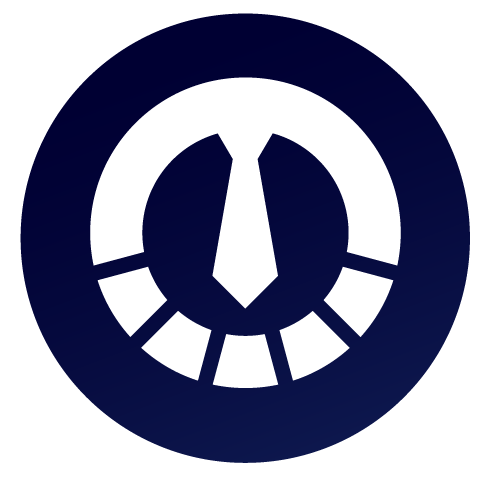Anúncios
We all know someone whose job was shaken by unexpected economic ups and downs. Maybe you’ve found yourself wondering how to confidently chart your own course no matter what the headlines say.
This topic matters for everyone, not just those facing job insecurity. Economic shifts affect workers across industries and generations. Understanding how to adapt helps not only our careers but also our families, communities, and financial peace of mind.
Dive into this guide to discover strategies, mindset shifts, and actionable steps that can help you build a rewarding, resilient career—one that weathers change and fuels lifelong growth.
Building Core Skills That Outlast Trends
Long-term career stability often begins with investing in essential skills that remain relevant across industries. Think of your skills as the sturdy foundation beneath a home—flexible yet unshaken by storms.
Imagine riding a bicycle: balancing, steering, and pedaling are core skills. While the bike might change style or speed, those basics always matter. In your career, core abilities stay valuable even as job titles shift.
- Communication: Clearly conveying ideas and listening actively ensures consistent value, whether in person or online.
- Critical thinking: Analyzing information to solve problems supports better decision-making in any role.
- Adaptability: Embracing change positions you for smoother transitions and new opportunities.
- Collaboration: Working well with others is fundamental, no matter your field or position.
- Emotional intelligence: Understanding your own feelings and those of colleagues builds strong professional relationships.
By regularly practicing and updating these skills, you become more marketable and more likely to thrive even as industries evolve or economic tides turn.
Networking With Intention Across Diverse Circles
Networking isn’t just about collecting business cards at events. Real career resilience comes from forming genuine, diverse connections. Think of it like tending a garden: different plants, healthy soil, and regular attention create long-lasting beauty and nourishment.
Maria, a marketing associate, expanded her network beyond her department by joining a community literacy group and volunteering at virtual meetups. When her company downsized, her connections told her about openings elsewhere.
Jared, an IT consultant, stayed in touch with college classmates working in other industries. As new projects emerged, this unexpected circle led to consulting gigs he never saw coming.
When you make networking about mutual support and knowledge-sharing—not just job hunting—you naturally build a safety net. These relationships often offer insight, referrals, or even moral support during economic uncertainty.
Strategies for Diversifying Your Career Assets
Think about diversifying your career like managing a carefully balanced investment portfolio—relying on a single asset brings risk, so variety is key. Here’s a step-by-step approach for building multiple avenues of value.
- Assess your core experience: Inventory your primary job skills, certifications, and achievements so you know your starting strengths.
- Identify adjacent skills: Explore related roles or competencies—such as project management or data analytics—that could complement your current path.
- Pursue part-time or freelance projects: Tackling side gigs provides new experiences and cushions you against industry downturns.
- Certifications and education: Formal learning through courses, seminars, or certifications shows commitment to growth and keeps your knowledge fresh.
- Volunteer and passion work: Experience in nonprofit or extracurricular spaces builds skills and contacts that can open professional doors, too.
- Entrepreneurial ventures: Even a small side business or blog can boost your visibility, broaden your skill set, and potentially generate supplementary income.
- Mentorship: Both offering and seeking mentorship help you develop perspective and gain access to broader circles.
Diversifying your career assets means you’re less likely to feel stuck if any one area faces setbacks—just like a well-diversified investment portfolio weathers market changes.
Comparing Career Paths: Stability Versus Agility
Some people stay with one employer for years; others move often or work independently. Both approaches have advantages and drawbacks, especially during economic turbulence.
If you picture careers as modes of transportation, tenure with a single employer is like taking the train: steady and predictable. Shifting roles frequently is more like biking—you can change direction quickly but might face some bumps.
| Path | Pros | Cons |
|---|---|---|
| Long-term employment | Stability, steady pay, benefits | Can be vulnerable to layoffs, less skill variety |
| Freelancing/contract work | Flexibility, rapid skill growth, wider network | Less income predictability, benefits not guaranteed |
| Frequent job-switching | More diverse experience, adaptability | Can seem unreliable to some employers, may need to explain moves |
This table highlights some considerations to weigh when planning your career trajectory. The best approach often combines stability from core skills with adaptability from broader experience.
Building Resilience Through Continuous Learning
Picture your career as a garden that needs regular tending. New technologies, business practices, and economic realities are like changing weather patterns—the more you invest in learning, the more robust your harvest becomes.
Consider Sarah, a graphic designer, who took an online user experience course. When her company shifted toward web-based products, she landed a promotion. Her story illustrates the impact of continuous growth.
Sometimes, learning opportunities show up where we least expect them—a side project, a new collaboration, or picking up a skill from a colleague. Staying curious ensures you’re ready for whatever comes next.
Comparing two colleagues—one who rests on their current expertise and another who regularly acquires new skills—shows the clear advantage of learning. The latter faces economic shifts with greater ease and optimism.
Proactive Tools and Habits for Career Security
- Update your resume every six months, noting new skills or major achievements
- Schedule monthly check-ins with mentors or trusted peers to stay connected
- Create a personal development plan outlining learning goals and progress
- Monitor industry trends with curated news sources and professional newsletters
- Build a savings buffer to cushion against work transitions
- Share small wins and lessons learned on professional platforms to increase visibility
Developing habits like regular resume updates or check-ins pays long-term dividends. These tools aren’t just for job seekers—they help maintain momentum and confidence through many stages of your working life.
On days when motivation dips, your written plan or positive online feedback can boost your spirits. These habits not only keep you prepared but ensure you’re recognized as proactive and resourceful by others in your field.
Career Evolution: Comparing Outcomes and What-Ifs
Imagine two friends, Alex and Jamie. Alex built broad, portable skills and had side projects, while Jamie focused solely on one niche role. When their industry contracted, Alex found new options faster.
If you spend a decade cultivating relationships and adaptability, you’re like a traveler with multiple maps instead of relying on only one path. This diversity leads to more resilience and opportunity, even when the unexpected occurs.
Suppose someone ignores economic changes, hoping things don’t affect them. Over time, stagnation can leave them scrambling. Yet those who’ve stayed flexible and connected generally bounce back faster when disruptions arrive.
Conclusion: Sustaining Career Growth Through Change
Your career doesn’t need to stall every time the economy shifts. By focusing on lasting skills, genuine networking, and continuous learning, you build safeguards that help you thrive across economic cycles.
Economic changes will always loom on the horizon. The best defense is preparing steadily—updating skills, embracing new opportunities, and cultivating relationships that span industries and backgrounds.
When you treat your career as an evolving investment, it grows steadily while also remaining agile when storms roll in. Every habit and connection you build today is a step toward lasting resilience.
Embrace the journey of growth, seek out new knowledge, and maintain confidence knowing you’re well-equipped for whatever comes next. Your career is a long-term story, not just a series of jobs.
With patience and intention, you’ll not only survive economic changes but also shape a fulfilling, adaptable career path that reflects your values and ambitions.



